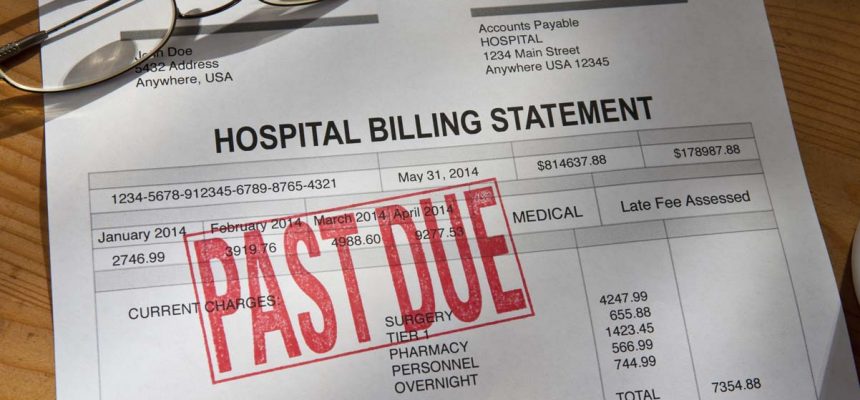Ghost Bill: UVA Siphons Couple’s Tax Refund To Pay 20-Year-Old Medical Debt
By Consumers For Quality Care, on June 29, 2020

Kaiser Health News reports on a Charlottesville couple mystified after an unusual notice from the Virginia tax department.
The notice said their state tax refund was cut in half due to an outstanding medical debt owed to the University of Virginia (UVA) Medical Center. According to the couple, the money was withheld for medical care that their son received almost two decades ago.
“The amount is not the issue; it’s this whole idea that you can go after something that is so old,” said Jane Collins. “Maybe technically you are entitled to that money, but do you mean to tell me you can go into the deep recesses of your computer and now you’re going to take this?”
Collins said that she initially couldn’t remember what the bill was for, and no longer has a paper record from so long ago. She believes the bills are related to hospital visits for her son, who was born prematurely and hospitalized frequently.
Meant to be a last resort, the state of Virginia is allowed to use residents’ income tax refunds to pay for outstanding medical debt. State-affiliated hospitals will generally try to first collect money owed to them either directly or by using a collection agency.
If the hospital is not successful, they can send claims to the state’s tax department, where Social Security numbers are used to electronically match a claim with an individual’s tax return.
The method is controversial, particularly for care that was received decades ago.
“This gives a whole new meaning to surprise medical bills,” said Mark Rukavina, business development manager at Community Catalyst, a consumer advocacy organization. “Digging up a bill that’s 20 years old and informing someone that they owe it by attaching their tax refund is not good policy.”
In addition to the age of the debt, many also question whether the amount billed is even accurate. For example, the printout that Collins received from the hospital lists service codes but no description of the hospitalization.
A new state law says that these hospitals cannot use the tax program to payoff medical debts until it is confirmed that the patient is not eligible for financial assistance programs or Medicaid.
While the hospital said that Collins had been sent various notifications, she says she was unaware of her debt nor did she receive notices from the hospital until after their refund was withheld.
Collins says she has yet to get clear answers from the medical center.



